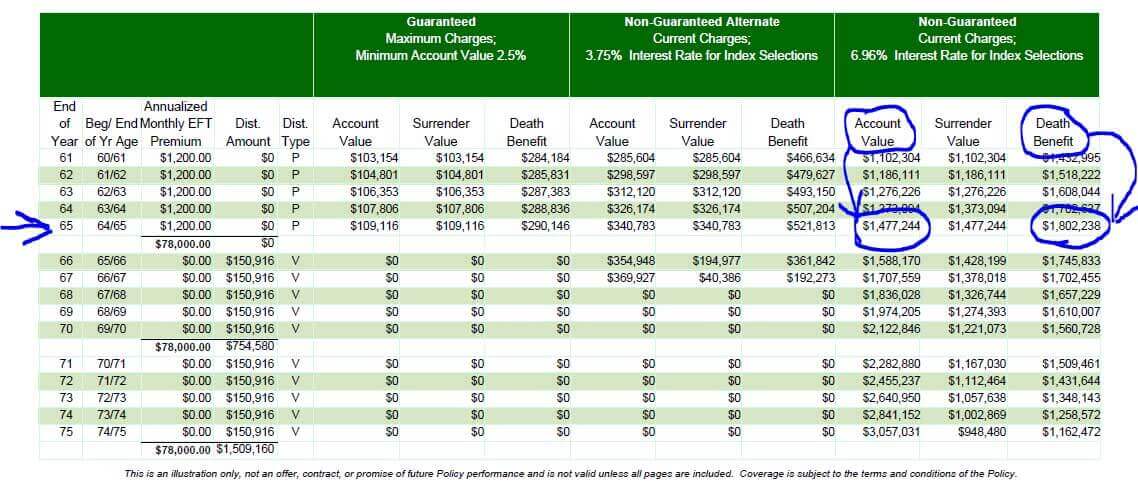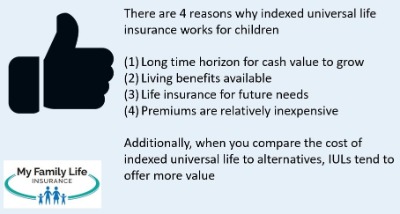All Categories
Featured
Table of Contents
Do they contrast the IUL to something like the Lead Overall Stock Market Fund Admiral Shares with no tons, a cost ratio (ER) of 5 basis points, a turnover proportion of 4.3%, and an extraordinary tax-efficient record of distributions? No, they compare it to some awful proactively handled fund with an 8% tons, a 2% ER, an 80% turn over proportion, and a terrible record of short-term capital gain distributions.
Shared funds often make yearly taxed distributions to fund proprietors, also when the value of their fund has dropped in worth. Common funds not only need revenue coverage (and the resulting annual tax) when the mutual fund is going up in value, but can additionally enforce income taxes in a year when the fund has decreased in worth.
That's not exactly how common funds function. You can tax-manage the fund, collecting losses and gains in order to decrease taxable distributions to the capitalists, but that isn't in some way mosting likely to transform the reported return of the fund. Just Bernie Madoff types can do that. IULs prevent myriad tax obligation catches. The ownership of mutual funds might require the mutual fund proprietor to pay projected tax obligations.
IULs are easy to place to make sure that, at the proprietor's fatality, the beneficiary is exempt to either earnings or inheritance tax. The exact same tax obligation decrease strategies do not function almost as well with mutual funds. There are many, typically pricey, tax obligation traps connected with the timed acquiring and marketing of shared fund shares, traps that do not put on indexed life Insurance.
Chances aren't extremely high that you're mosting likely to be subject to the AMT due to your mutual fund circulations if you aren't without them. The rest of this one is half-truths at best. For example, while it holds true that there is no earnings tax obligation as a result of your successors when they acquire the profits of your IUL policy, it is likewise true that there is no earnings tax obligation due to your heirs when they inherit a shared fund in a taxed account from you.
What Is Accumulation Value On Life Insurance
The government inheritance tax exemption restriction mores than $10 Million for a pair, and expanding every year with inflation. It's a non-issue for the large bulk of physicians, much less the rest of America. There are much better ways to avoid estate tax obligation concerns than buying investments with low returns. Common funds may cause revenue tax of Social Safety benefits.

The growth within the IUL is tax-deferred and may be taken as tax obligation complimentary income using car loans. The plan proprietor (vs. the shared fund supervisor) is in control of his/her reportable revenue, thus enabling them to lower or perhaps get rid of the taxes of their Social Safety advantages. This one is terrific.
Here's an additional minimal issue. It's real if you acquire a mutual fund for claim $10 per share prior to the distribution day, and it disperses a $0.50 circulation, you are then going to owe tax obligations (probably 7-10 cents per share) although that you haven't yet had any kind of gains.
In the end, it's truly about the after-tax return, not just how much you pay in tax obligations. You're additionally probably going to have more cash after paying those taxes. The record-keeping requirements for owning shared funds are substantially more complex.
With an IUL, one's documents are maintained by the insurance provider, duplicates of yearly declarations are sent by mail to the proprietor, and circulations (if any kind of) are completed and reported at year end. This set is additionally sort of silly. Certainly you must maintain your tax documents in situation of an audit.
Indexed Whole Life Insurance
Rarely a reason to buy life insurance policy. Mutual funds are typically part of a decedent's probated estate.
Additionally, they go through the delays and expenses of probate. The proceeds of the IUL policy, on the various other hand, is constantly a non-probate circulation that passes beyond probate directly to one's called beneficiaries, and is consequently exempt to one's posthumous financial institutions, unwanted public disclosure, or similar hold-ups and prices.
We covered this one under # 7, but simply to wrap up, if you have a taxable common fund account, you should put it in a revocable trust (or perhaps less complicated, utilize the Transfer on Death classification) in order to stay clear of probate. Medicaid incompetency and life time income. An IUL can offer their owners with a stream of earnings for their whole life time, no matter for how long they live.

This is advantageous when arranging one's affairs, and converting possessions to income before an assisted living home arrest. Common funds can not be transformed in a similar fashion, and are often considered countable Medicaid assets. This is another foolish one advocating that inadequate individuals (you recognize, the ones who require Medicaid, a federal government program for the inadequate, to spend for their nursing home) ought to use IUL instead of common funds.
Universal Term Life
And life insurance coverage looks terrible when contrasted rather versus a pension. Second, people who have cash to buy IUL over and beyond their pension are going to have to be horrible at managing money in order to ever get approved for Medicaid to spend for their retirement home costs.
Persistent and incurable illness motorcyclist. All plans will certainly enable an owner's very easy accessibility to money from their policy, typically waiving any surrender fines when such people suffer a significant health problem, need at-home treatment, or end up being confined to an assisted living home. Shared funds do not offer a comparable waiver when contingent deferred sales charges still relate to a common fund account whose owner requires to sell some shares to money the prices of such a stay.
Iul 7702
You get to pay even more for that advantage (biker) with an insurance coverage policy. Indexed universal life insurance policy gives fatality advantages to the beneficiaries of the IUL owners, and neither the owner nor the beneficiary can ever lose cash due to a down market.
Currently, ask on your own, do you in fact need or desire a death benefit? I absolutely do not need one after I get to monetary freedom. Do I want one? I mean if it were low-cost enough. Naturally, it isn't economical. On standard, a purchaser of life insurance spends for truth price of the life insurance coverage benefit, plus the costs of the plan, plus the profits of the insurance business.
指数 型 保险
I'm not totally sure why Mr. Morais included the entire "you can't shed cash" once again here as it was covered rather well in # 1. He simply desired to duplicate the very best selling factor for these things I suppose. Once again, you don't shed nominal bucks, yet you can shed actual dollars, in addition to face major chance cost as a result of reduced returns.

An indexed universal life insurance plan proprietor might exchange their policy for a totally different policy without setting off income taxes. A shared fund owner can stagnate funds from one common fund company to another without offering his shares at the former (therefore triggering a taxable occasion), and redeeming new shares at the latter, typically subject to sales charges at both.
While it holds true that you can exchange one insurance plan for an additional, the reason that individuals do this is that the very first one is such a terrible plan that also after getting a new one and going via the very early, adverse return years, you'll still appear in advance. If they were marketed the appropriate plan the very first time, they should not have any wish to ever before exchange it and undergo the very early, unfavorable return years again.
Latest Posts
Whole Life Index Insurance
Universal Life Tools
Difference Between Universal And Whole Life